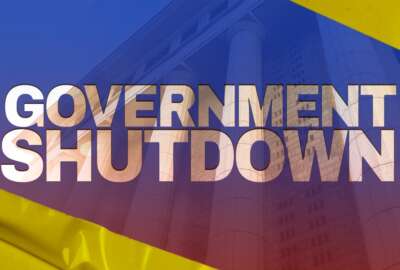Will a fiscal calendar date change make future government shutdown threats disappear?
In today's Federal Newscast: Homeland Security Committee Republicans want to block funding for a new panel of intelligence advisers that includes Clapper and Br...
- With a shutdown looming in less than two days, one senator wants to change the federal calendar. What if the federal fiscal year started on January 1 instead of October 1? Would that reduce the impact of continuing resolutions and the threat of shutdowns? Sen. Tim Kaine (D-Va.) thinks so. Kaine's bill, called the "Modernizing the Federal Calendar Act," would move the start of the federal fiscal year out by three months to January 1. Kaine said this change would better align with when Congress actually passes year-long funding bills. The federal fiscal year moved to October 1 from July 1 under the Budget and Impoundment Control Act of 1974. (Senate bill to move fiscal year start to Jan. 1 - Sen. Tim Kaine (D-Va.))
- Less than a week after the Homeland Security Department announced a new advisory group, some House lawmakers are pushing to terminate it. Homeland Security Committee Republicans introduced legislation that would block funding for DHS’s new Homeland Intelligence Experts Group. DHS announced the creation of the group last week. It plans to provide advice to DHS’s Office of Intelligence and Analysis, as well as the department’s Counterterrorism Coordinator. But the GOP lawmakers argue members of the group, including former Director of National Intelligence James Clapper and former CIA Director John Brennan, are politically biased. (Homeland Security Republicans introduce legislation to block DHS’s new Intelligence Experts Group - House Homeland Security Committee)
- There is another increase on the way for federal employees' health insurance costs. Federal employees and retirees will pay about 7.7% more toward their premiums in the Federal Employees Health Benefits (FEHB) Program. The change will start in January. The premium increase is not as large as what feds saw last year. But among concerns of a potential government shutdown, federal unions say they are worried about the timing of the announcement. The premium rate announcement also comes ahead of the start of Open Season on Nov. 13. That is when program enrollees can make changes to their health plan options. The Office of Personnel Management has said Open Season will continue as normal, even in the case of a shutdown.(Federal employees will pay 7.7% more toward health premiums in 2024 - Federal News Network)
- A backlog of federal building repairs is slowing efforts to sell unused office space. Congress is pressuring the Biden administration to get rid of under-utilized government office space. But the agency in charge, the General Services Administration, said it does not have enough funding to deal with a backlog of repairs and upgrades. Nina Albert is the commissioner of GSA’s Public Buildings Service. She said that backlog has led to as many as 120 missed opportunities over the past decade for agencies to consolidate office space. “I like to say that we want better buildings, but fewer buildings,” Albert said.(GSA: ‘Right-sizing’ federal office space requires more funding on deferred upgrades - Federal News Network)
- Employees at the Justice Department will soon have to go into the office more often. Starting in January, all department staff will be required to work in person at least six days per two-week pay period. Department managers are also expected to set weekly "core" days in the office to ensure that staff members come in on the same days. DoJ's announcement marks another of many agencies that are setting higher in-office requirements after a memo from the Biden administration. More than 70% of DoJ personnel said they already work in person 50% of the time or more, according to an employee survey.(Updated with DoJ: A running list of agencies’ return-to-office plans - Federal News Network)
- Lawmakers are demanding tougher guardrails on bonuses at the Department of Veterans Affairs. VA announced last week it is taking back nearly $10 million in bonuses to career executives, over concerns some recipients were ineligible. Leaders of the House and Senate committees that oversee the VA are asking how this happened and how soon the VA will be able to recover the money. Congressional staffers tell Federal News Network that about 200 career executives working outside the D.C. metro area also received bonuses, but they have not been asked to pay the money back.
- Agencies have an updated set of frequently asked questions to better understand how to prepare for a possible government shutdown. The Office of Management and Budget's new 17-page FAQs offers answers to more than 30 questions. The document covers everything from performing an orderly shutdown to how to deal with contracts and grants to managing technology support services. OMB said the outline and answers are based on the legal opinions issued by the Department of Justice and the guidance issued by OMB regarding agency operations during a lapse in appropriations under Circular A-11.(OMB updates lapse in appropriations FAQs - White House)
- The Transportation Security Administration is finalizing permanent cybersecurity rules for critical pipeline operators. The TSA also told the Department of Homeland Security inspector general that it is verifying whether operators are following temporary cyber rules issued after the Colonial Pipeline hack. The IG found TSA did not ensure that all critical pipeline operators were following through on the cybersecurity directives. The IG's latest report recommends TSA follow-up on its rules to strengthen pipeline cybersecurity.
Copyright © 2024 Federal News Network. All rights reserved. This website is not intended for users located within the European Economic Area.
Peter Musurlian
Peter Musurlian is a producer at Federal News Network.
Follow @PMusurlianWFED
Related Stories
GSA: ‘Right-sizing’ federal office space requires more funding on deferred upgrades
Data Dive
Government Shutdown
Read more
Here’s how many feds would stay on the job – both with and without pay – during an upcoming shutdown
Related Topics






